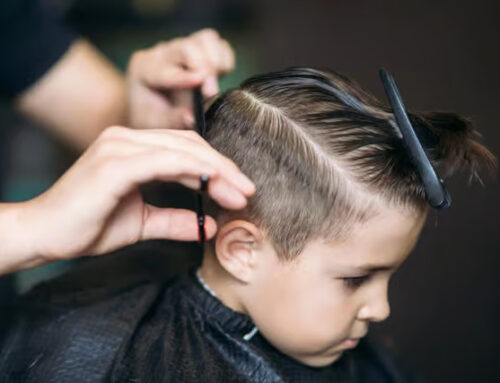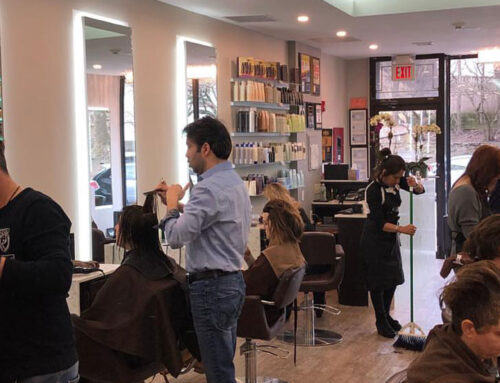Introduction:
Thinning hair is a concern that many people face, and while genetics and aging play significant roles, diet can also impact the health and thickness of your hair. In this blog post, we’ll explore the connection between diet and thinning hair, focusing on essential nutrients, foods to promote hair health, foods to avoid, the role of protein, and the importance of hydration.
Essential Nutrients for Hair Health
Maintaining a diet rich in essential nutrients is paramount for healthy hair growth and vitality. Let’s delve deeper into the role of each nutrient and explore additional sources and benefits:
-
Vitamin A:
This crucial vitamin not only helps the scalp produce sebum but also plays a role in cell growth, including hair follicles’ maintenance. Incorporating foods like carrots, sweet potatoes, and leafy greens into your diet can ensure an adequate intake of vitamin A, promoting scalp health and hair growth.
-
Biotin:
Often referred to as the “hair growth vitamin,” biotin is essential for the synthesis of keratin, the protein that forms the structural foundation of hair. In addition to eggs and nuts, incorporating biotin-rich foods such as avocados, mushrooms, and whole grains can support strong, healthy hair growth.
-
Vitamin C:
Beyond its antioxidant properties, vitamin C is crucial for collagen production, which is essential for maintaining the integrity of hair follicles and supporting their anchorage in the scalp. Citrus fruits, strawberries, and kiwis are excellent sources of vitamin C, providing both hair-nourishing nutrients and immune system support.
-
Vitamin E:
As a potent antioxidant, vitamin E helps protect hair follicles from oxidative stress and promotes blood circulation to the scalp, ensuring a steady supply of oxygen and nutrients. Incorporating vitamin E-rich foods like almonds, sunflower seeds, and avocados into your diet can contribute to healthy hair growth and scalp maintenance.
-
Iron:
Iron deficiency is a common cause of hair loss, as it can disrupt the hair growth cycle and lead to premature shedding. Along with incorporating iron-rich foods such as lean meats and legumes, it’s essential to pair them with vitamin C-rich foods to enhance iron absorption and maximize its hair-nourishing benefits.
Foods to Help Prevent Hair Loss
In addition to the essential nutrients mentioned above, certain foods contain specific compounds and nutrients that promote hair health and minimize the risk of hair loss:
-
Salmon:
In addition to being rich in omega-3 fatty acids, salmon contains vitamin D, which plays a role in hair follicle cycling and maintenance. Including oily fish like salmon, mackerel, and sardines in your diet can provide essential nutrients for healthy hair growth.
-
Spinach:
Beyond its iron content, spinach is a powerhouse of vitamins and minerals, including vitamin C, vitamin A, and folate, all of which contribute to scalp health and hair growth. Incorporating spinach into salads, smoothies, or stir-fries is an easy way to boost your hair-nourishing nutrient intake.
-
Eggs:
In addition to being a rich source of biotin and protein, eggs contain other essential nutrients like zinc and selenium, which play roles in hair growth and scalp health. Whether scrambled, poached, or hard-boiled, incorporating eggs into your diet can provide a nutrient-dense boost for your hair.
-
Sweet Potatoes:
Beyond their vitamin A content, sweet potatoes are rich in antioxidants like beta-carotene, which helps combat oxidative stress and promote healthy hair growth. Whether roasted, mashed, or baked, adding sweet potatoes to your meals can contribute to overall hair health and vitality.
-
Nuts and Seeds:
Almonds, walnuts, and flaxseeds are not only rich in vitamin E and zinc but also contain essential fatty acids that nourish the scalp and support hair growth. Sprinkling nuts and seeds over salads, yogurt, or oatmeal can provide a crunchy, nutrient-packed boost for your hair.
Foods to Avoid for Thinning Hair
While incorporating hair-nourishing foods into your diet is essential, it’s equally important to limit or avoid certain dietary factors that can contribute to hair thinning and loss:
-
Sugary Foods:
High-sugar diets can lead to insulin resistance and inflammation, both of which are associated with hair loss conditions like androgenetic alopecia. Minimizing your intake of sugary snacks, desserts, and beverages can help maintain stable blood sugar levels and support overall hair health.
-
Processed Foods:
Processed foods often contain high levels of refined carbohydrates, unhealthy fats, and artificial additives, all of which can negatively impact hair health. Opting for whole, unprocessed foods like fruits, vegetables, lean proteins, and whole grains can provide essential nutrients for healthy hair growth.
-
Alcohol:
Excessive alcohol consumption can lead to dehydration, nutrient depletion, and hormonal imbalances, all of which can contribute to hair thinning and loss. Moderating your alcohol intake and staying hydrated with water or herbal teas can help maintain optimal hair health.
-
High-Sodium Foods:
Diets high in sodium can lead to water retention and electrolyte imbalances, which may affect blood flow to the scalp and hair follicles. Choosing low-sodium alternatives and flavoring your meals with herbs, spices, and citrus juices can help reduce your sodium intake and support hair health.
By being mindful of these dietary factors and making informed choices about the foods you consume, you can support your hair’s health and minimize the risk of thinning and loss.
Role of Protein in Hair Growth
Protein is a fundamental building block for hair, as it provides the structural foundation for hair shafts and supports their growth and maintenance. Let’s explore the importance of protein in more detail and identify additional sources and benefits:
-
Keratin Synthesis:
Hair is primarily composed of a protein called keratin, which gives it strength, elasticity, and resilience against external damage. Adequate protein intake is essential for supporting keratin synthesis and maintaining healthy hair growth cycles.
-
Amino Acid Composition:
Proteins are made up of amino acids, some of which are essential for hair health, such as cysteine, methionine, and lysine. Including a variety of protein sources in your diet, such as meat, poultry, fish, dairy, legumes, and tofu, ensures a diverse amino acid profile for optimal hair growth and strength.
-
Hair Growth Cycle:
Protein plays a vital role in all phases of the hair growth cycle, from the anagen or growth phase to the catagen or transitional phase and the telogen or resting phase. Ensuring an adequate intake of protein-rich foods can support each stage of the hair growth cycle and minimize hair shedding and thinning.
-
Hair Structure and Thickness:
Proteins like collagen and elastin provide structural support to the hair shaft, contributing to its thickness, texture, and overall appearance. Consuming protein-rich foods regularly can help maintain hair density and prevent thinning and breakage.
Incorporating a variety of protein sources into your diet, including lean meats, fish, poultry, eggs, dairy products, legumes, and plant-based proteins, can provide the essential amino acids and nutrients needed for healthy, vibrant hair.
Importance of Hydration for Healthy Hair
Staying hydrated is essential for overall health, including the health of your hair. Let’s explore the role of hydration in hair health and identify strategies for maintaining optimal hydration levels:
-
Scalp Health:
Dehydration can lead to a dry, flaky scalp, disrupting the natural balance of oils and impairing hair growth. Ensuring adequate hydration by drinking water throughout the day supports a healthy scalp environment conducive to hair growth.
-
Hair Moisture:
Just as moisturizing your skin is essential for maintaining its elasticity and suppleness, hydrating your hair from within is crucial for preventing dryness, brittleness, and breakage. Drinking water and consuming water-rich foods like fruits, vegetables, and soups can help hydrate your hair from the inside out.
-
Nutrient Transport:
Water facilitates the transport of essential nutrients to the hair follicles, ensuring that they receive the nourishment they need to thrive. Without adequate hydration, nutrient delivery to the scalp may be compromised, potentially affecting hair growth and vitality.
In addition to drinking water, incorporating hydrating foods like cucumbers, melons, and celery into your diet can contribute to overall hydration and support healthy hair from the inside out.
FAQ
Can diet reverse thinning hair?
While diet alone may not completely reverse thinning hair, adopting a nutrient-rich diet can significantly improve hair health and may help slow down or halt further thinning.
Consuming foods rich in vitamins, minerals, and proteins that support hair growth, along with maintaining overall nutritional balance, can contribute to healthier, thicker hair over time.
What foods stop hair thinning?
Several foods are known to promote hair health and may help prevent or minimize hair thinning.
These include foods rich in essential nutrients like vitamins A, C, D, E, and biotin, as well as minerals like iron and zinc. Incorporating a variety of fruits, vegetables, lean proteins, whole grains, and healthy fats into your diet can provide the necessary nutrients to support optimal hair growth and thickness.
Can a bad diet cause hair thinning?
Yes, a poor diet lacking in essential nutrients can contribute to hair thinning and loss. Diets high in processed foods, sugar, unhealthy fats, and low in essential vitamins and minerals can disrupt the hair growth cycle and lead to weakened, thinning hair over time.
It’s important to maintain a balanced diet rich in nutrient-dense foods to support overall health, including the health of your hair.
Will hair loss from dieting grow back?
In many cases, hair loss due to temporary dietary changes or deficiencies can be reversed once nutritional imbalances are corrected.
However, it’s essential to address the underlying cause of hair loss, whether it’s due to inadequate nutrient intake, extreme dieting, or other factors. With proper nutrition and care, hair lost due to diet-related issues can often grow back within a few months once the body’s nutritional needs are met. Consulting with a healthcare professional or a registered dietitian can help develop a personalized plan to promote hair regrowth and overall well-being.






